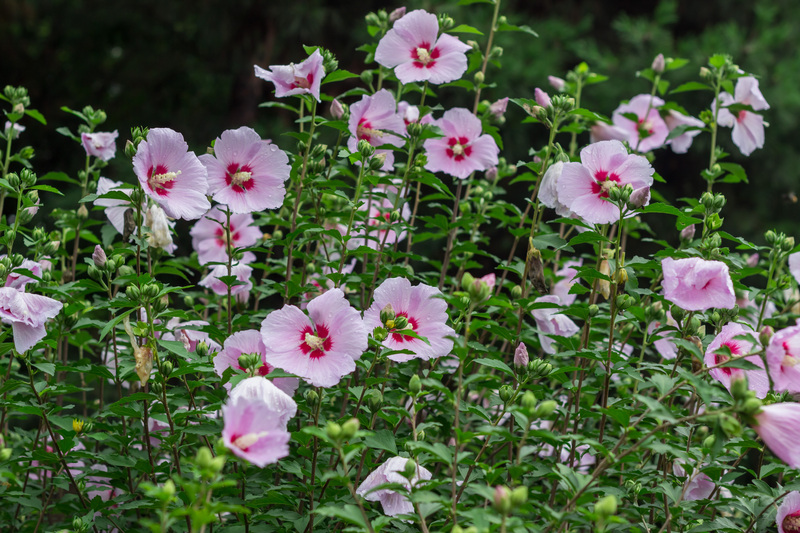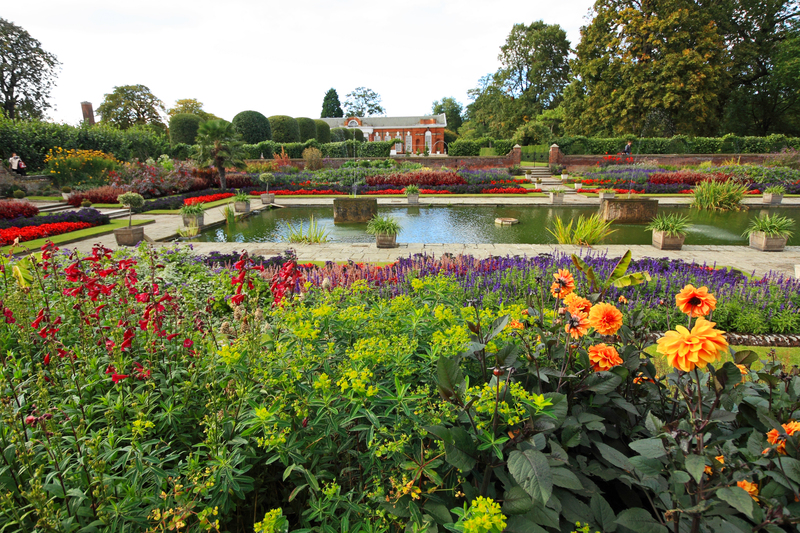The Sustainable Path: Organic Waste into Rich Soil
Posted on 13/08/2025
The Sustainable Path: Transforming Organic Waste into Rich Soil
In today's world, sustainability isn't just a buzzword--it's a necessity. One of the simplest yet most impactful actions we can take is converting organic waste into rich, fertile soil. This approach benefits our planet, promotes healthier gardens, and fosters resilient communities. As we dig deeper, you'll discover why composting and mindful waste management are key to a sustainable future.

Understanding Organic Waste: What Is It?
Before you can appreciate the journey from organic waste to rich soil, it's important to understand what qualifies as organic waste. In environmental science and everyday practice, organic waste refers to:
- Food scraps (_vegetable peels, coffee grounds, eggshells, etc._)
- Yard trimmings (leaves, grass clippings, branches)
- Paper products (unbleached paper towels, napkins, cardboard)
- Natural fibers (cotton, wool, jute)
The key characteristic of organic material is that it's biodegradable, meaning microbes can break it down into simpler substances. But when organic waste is sent to landfill, it decomposes anaerobically, producing methane--a potent greenhouse gas. By contrast, when we compost organic waste, we nurture soil health and turn waste into an invaluable resource.
Why Transform Organic Waste Into Soil? The Benefits at a Glance
Converting organic waste into nutrient-rich soil is more than just a trend; it's a time-tested practice with massive benefits, including:
- Reducing landfill waste: Around 30% of the waste we discard is organic. Composting it at home or in community settings dramatically reduces landfill contributions.
- Lowering greenhouse gas emissions: Aerobic decomposition through composting produces minimal methane.
- Improving soil fertility: Nutrient-rich compost replenishes soil, enhancing its structure, moisture retention, and nutrient profile for healthier plant growth.
- Closing the nutrient loop: By returning nutrients to the earth, we complete a natural cycle, promoting sustainable agriculture and reducing reliance on chemical fertilizers.
- Promoting biodiversity: Healthy soil supports robust microbial, insect, and plant communities.
Every peel, scrap, and leaf counts in building a sustainable ecosystem right at home.
The Science Behind Composting: Turning Organic Waste into Rich Soil
Composting is the most common and accessible method to convert organic waste into rich soil. But what exactly happens during the process?
The Composting Process Explained
- Organic waste is gathered in a designated area--a compost bin, pile, or tumbler.
- Microorganisms (bacteria, fungi, and actinomycetes) break down complex organic compounds, such as cellulose and lignin, into simpler molecules.
- If managed aerobically (with oxygen), the material heats up, accelerating decomposition and destroying many pathogens and weed seeds.
- The process produces humus--the dark, crumbly, nutrient-rich material that enhances the fertility and structure of soil.
Key Factors for Successful Composting:
-
Balance of Greens and Browns:
- Greens: Provide nitrogen (vegetable scraps, coffee grounds, grass clippings).
- Browns: Provide carbon (dry leaves, straw, cardboard).
- Moisture: The pile should be as damp as a wrung-out sponge.
- Oxygen: Aerate the compost regularly (by turning it) to avoid odor and ensure effective decomposition.
- Particle Size: Smaller pieces decompose faster, so chop up larger items when possible.
- Temperature: Compost heats up as microorganisms break down waste. Between 130?F and 160?F is ideal for quick, safe composting.
After a few months, your pile of waste will transform into black gold, ready to enrich your garden or lawn.
Different Methods to Turn Organic Waste Into Fertile Soil
Turning organic kitchen waste into rich soil can be done in various ways. The right method depends on your space, time, and needs. Here are the most popular approaches:
Traditional Backyard Composting
This classic method involves creating a pile or using a bin outdoors where food scraps and yard waste are regularly added and mixed. It's cost-effective and easy for households with a garden.
Vermicomposting (Worm Composting)
Worms (especially red wigglers) efficiently break down organic matter into castings, a potent soil amendment. Vermicomposting is ideal for apartments, schools, or community settings, as it requires less space and produces little odor.
Bokashi Composting
This Japanese technique uses special microorganisms in a bran mix to ferment (rather than rot) organic waste, including dairy and meat. Although it still requires burying the finished product in soil, bokashi is fast and minimizes smells.
Trench Composting
Waste is buried directly in garden trenches, where microbes and worms convert it into soil nutrients. It's simple, discreet, and perfect for enriching specific garden beds, though not ideal for heavy or quick composters.
Municipal Composting Programs
Cities worldwide are launching curbside organic waste collection. These large-scale operations use industrial processes to efficiently create vast amounts of rich compost, supporting public parks and local farms.
Best Practices for Composting Organic Waste
For optimal results and minimum hassle, follow these best practices:
- Compost the right materials: Stick to plant-based scraps, uncoated paper, and natural fibers. Avoid meat, dairy, oily foods, and pet waste in home piles--they attract pests and can harbor pathogens.
- Chop or shred larger items: This increases surface area and speeds up decomposition.
- Maintain a mix of greens and browns: Too much green (nitrogen) leads to odor; too much brown (carbon) slows decomposition.
- Aerate regularly: Turning your pile adds oxygen, preventing smells and promoting healthy bacteria.
- Monitor moisture: Dry piles halt decomposition. If it's too wet, add dry materials and mix well.
- Use mature compost: Compost is ready when it's dark, crumbly, and smells earthy, not rotten.
By following these tips, you ensure a smooth transition from organic waste to rich, living soil.
How Compost Enriches the Soil: Benefits Explained
Organic waste compost doesn't just add mass to the soil--it fundamentally transforms it. Here's how compost creates superior soil ecosystems:
- Improved Soil Structure: Compost binds soil particles, enhancing porosity and water retention. This means healthier roots and less runoff.
- Enhanced Nutrient Content: Finished compost provides a spectrum of macro- and micronutrients vital for plant growth--nitrogen, phosphorus, potassium, and trace minerals.
- Increased Microbial Activity: Healthy soil is alive. Compost introduces billions of beneficial microorganisms that help plants access nutrients and build natural disease resistance.
- Better Water Management: Rich, organic soil can hold more water, reducing irrigation needs and preventing drought stress in plants.
- Reduces Soil Erosion: Compost improves soil cohesion and plant root strength, making gardens and landscapes more resilient to wind and rain.
The ultimate payoff is lush, vibrant growth--whether you're tending a flowerbed or growing your own food.
Urban and Community Solutions for Organic Waste
Not everyone has the space for a backyard pile, but urban dwellers can still participate in organic waste composting. Here's how:
Community Composting Programs
Many cities now sponsor compost drop-offs at farmers' markets, parks, or local gardens. Research if such programs exist in your area--the convenience is unbeatable.
Neighborhood Composting Co-ops
Neighbors may team up to share responsibilities and benefits. By pooling organic waste and labor, you generate more rich soil amendments for shared green spaces or individual gardens.
Bokashi and Indoor Bins
If space is limited, container-based systems (like bokashi or stacking worm bins) work in kitchens, balconies, or garages. The result? Healthy soil right at your fingertips.
Green Roofs and Urban Gardens
Some city initiatives combine composting with green infrastructure, turning waste into high-quality soil for rooftop gardens or vacant lot reclamation.
The Future of Organic Waste Management: Innovations and Opportunities
Advanced systems are taking organic waste-to-soil conversion even further, with technologies such as:
- In-vessel composters: Enclosed, automated systems for rapid, odor-free composting at schools, restaurants, and housing complexes.
- Biogas digesters: Anaerobic systems that convert food waste to both nutrient-rich digestate (usable as fertilizer) and renewable energy (biogas).
- Black soldier fly larvae farms: These insects rapidly consume organic waste and produce protein-rich larvae for animal feed, with frass (worm castings) left behind as powerful soil amendment.
- Smart city sensors: Help optimize waste collection routes, track contamination, and maximize efficiency of municipal composting programs.
These solutions--combined with citizen participation--point toward a more sustainable, waste-free future.
Common Mistakes & Troubleshooting in Composting
Even experienced composters hit bumps in the road. Here are some frequent issues and their solutions:
-
Foul Smell: Usually from too much "green" or lack of oxygen.
- Solution: Add more dry "brown" materials and mix the pile thoroughly.
-
Pests (rats, raccoons): Attracted by inappropriate scraps or open bins.
- Solution: Avoid adding meat, dairy, or oily foods. Use a secure bin with a lid.
-
Pile Too Dry: Organic waste won't break down.
- Solution: Add water and moist green materials like fruit scraps or coffee grounds.
-
Pile Not Heating Up: Not enough nitrogen or not enough mass.
- Solution: Add more green materials and build a larger pile.
With a bit of patience and attention, these challenges are easy to overcome--leading to greater success with turning organic waste into life-giving soil.
The Role of Rich Soil in Sustainable Agriculture and Food Security
Transforming organic waste into lush, healthy soil isn't just a gardening hack--it's a cornerstone of sustainable agriculture.
- Reduces dependency on synthetic fertilizers--lowering costs, pollution, and environmental damage.
- Builds resilient, productive growing systems that can withstand drought, pests, and unpredictable weather.
- Promotes local food production, reducing transport emissions and boosting community nutrition.
Healthy soil means healthy people and a thriving planet. Compost is the bridge that turns waste into abundance.

Conclusion: Make the Change--From Organic Waste to Rich Soil Today!
Adopting a sustainable path by turning organic waste into rich soil is a simple act with extraordinary benefits. Whether you're an urban dweller with a balcony worm bin or a small farmer with a backyard pile, your scraps are the seeds of healthy soil, resilient harvests, and a cleaner environment.
By embracing composting and organic waste conversion, you're joining a global movement for sustainability. Start small, share your journey, and inspire your community. Together, we can transform waste into a resource--and build a greener world from the ground up.
Frequently Asked Questions (FAQ) - The Sustainable Path from Organic Waste to Rich Soil
1. What cannot be composted?
Do not compost: meat, dairy, oily foods, diseased plants, or pet waste in your home compost pile. These attract pests and may carry pathogens. Stick to plant-based and untreated organic waste.
2. How long does it take to turn organic waste into soil?
With optimal conditions (right materials, moisture, and aeration), composting takes 2-6 months. Lower temperatures or poor balance of materials slow the process.
3. Can I compost indoors?
Absolutely. Worm bins and bokashi buckets are popular indoor options for turning organic kitchen waste into rich soil even in apartments.
4. Does composting really make a difference for the planet?
Yes! Composting reduces landfill waste, cuts greenhouse gas emissions, and restores soil health--making a tangible positive impact globally.
5. How can I use finished compost?
Spread it in garden beds, top dress lawns, add to potting mixes, or make compost "tea" for house or garden plants. Your new rich soil will boost everything you grow!
Embrace the sustainable path today, and watch your organic waste bloom into a bountiful, living legacy.

